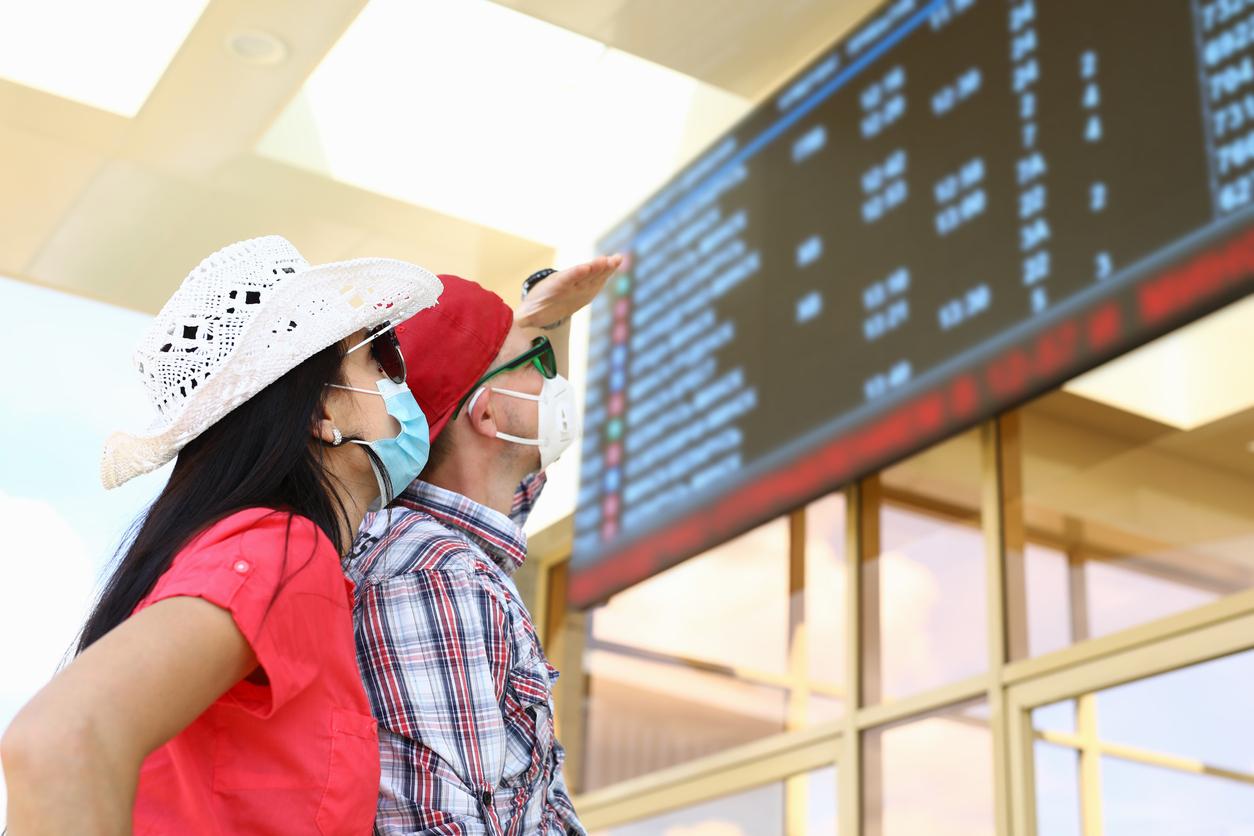The holiday weekend in the United States was marked by a sharp rise in new COVID-19 cases and canceled flights, as the Omicron (B.1.1.529) variant sweeps across the country.
Although reporting on new infections in many states was interrupted by Christmas, new COVID-19 cases in the United States have risen by 51% in the past week, according to the Washington Post case tracker. The 7-day average of new daily cases is 203,511, a level not seen Jan 19.
Among the states seeing massive increases in COVID-19 cases in the past week, driven by the highly contagious Omicron variant, are Florida (up 326%), Georgia (up 224%), and Maryland (up 179%). On Christmas eve, New York topped its previous single-day record for cases, with 49,708.
The Omicron wave contributed to the cancellation of 2,300 US flights on Saturday and Sunday, the New York Times reports. While bad weather and maintenance issues also played a role, several airlines said they were seeing an increasing number of sick calls due to Omicron among flight crews.
Those disruptions show no signs of abating. An additional 1,000 US flights were cancelled today.
Biden addresses US governors
With the nation now starting to see the impact of Omicron, President Biden today joined the White House COVID-19 Response Team's regular call with the National Governor's Association. It was the first time the president has participated in the call.
Biden revisited the measures introduced last week when he addressed the nation about the rising threat of Omicron. He said the federal government is helping states boost their capacity to provide COVID-19 vaccines and booster shots and is prepared to provide healthcare personnel and supplies to hospitals that become overwhelmed with COVID-19 patients.
But he also said the country was in a better position to handle the oncoming wave of cases, and that the next steps will have to be taken at the state level.
"As I said last week, Omicron is a source of concern, but it should not be a source of panic," the president said. "This is not like March of 2020…we're prepared and we know what it takes to save lives and protect people."
Biden also addressed the testing shortage. While noting that the government has opened new pop-up testing sites around the country over the past week and will send 500 million at-home tests to Americans in January, he acknowledged that too many people spent the Christmas weekend waiting on long lines to get PCR tests.
"It's not enough. It's clearly not enough," the president said.
Although the nation likely won't fully see how the Omicron wave is impacting hospitals for another week, White House chief medical adviser Anthony Fauci, MD, said yesterday that data from South Africa, England, and Scotland show the ratio of Omicron hospitalizations to cases is lower—a sign that the variant may cause less severe illness. But he warned that the United States can't get complacent, given how many people remain unvaccinated.
"Those are the most vulnerable ones when you have a virus that is extraordinarily effective in getting to people and infecting them the way Omicron is," Fauci told ABC News' "This Week".
According to the Centers for Disease Control and Prevention (CDC) COVID Data Tracker, 61.7% of Americans are fully vaccinated against COVID-19, and 72.7% have received at least one dose. Among those who are fully vaccinated, 31.5% have received a booster dose.
Healthcare worker isolation shortened
The surge in COVID-19 cases, including breakthrough infections among those vaccinated and boosted, is also raising concerns that hospitals are going to be losing staff members at the worst possible time. That concern prompted the CDC late last week to update its guidance for isolation and quarantine for healthcare workers.
Under the new guidance, healthcare workers who have COVID-19 but are asymptomatic can return to work after 10 days of isolation, or 7 days of isolation with a negative test. Isolation can be cut further if there are staffing shortages. In addition, healthcare workers who are fully vaccinated and have received a booster will not be required to quarantine at home following a high-risk exposure.
"Our goal is to keep healthcare personnel and patients safe, and to address and prevent undue burden on our healthcare facilities," CDC director Rochelle Walensky, MD, MPH, said in an agency press release.






















